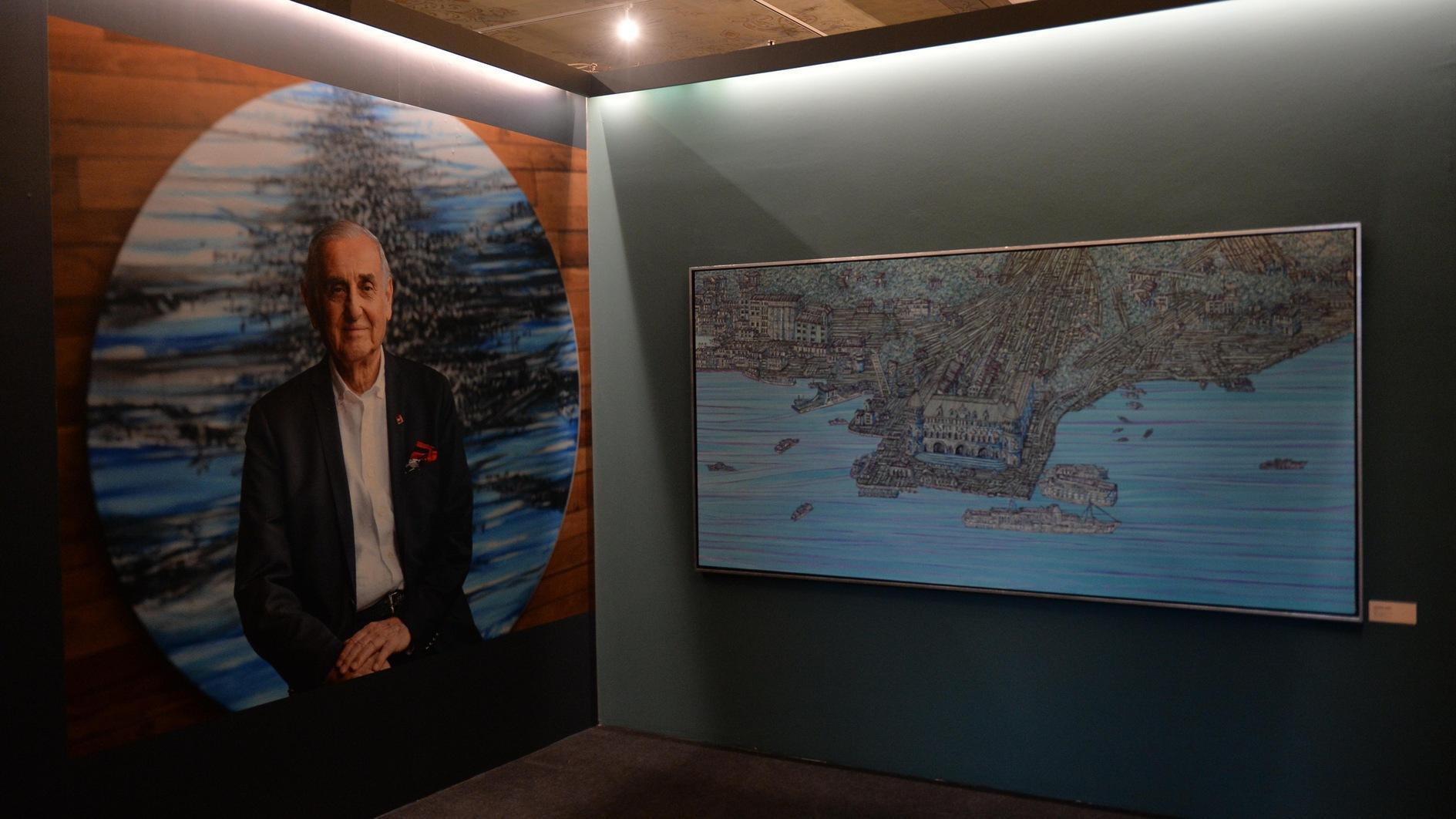Security Council approval needed before Syria military strike: UN envoy
GENEVA - Agence France-Presse

Free Syrian Army fighters and residents gather around a convoy of U.N. vehicles carrying a team of United Nations chemical weapons experts at one of the sites of an alleged chemical weapons attack in Damascus' suburbs of Zamalka August 28, 2013.REUTERS/Hadi Almonajed
The UN-Arab League special envoy for Syria said today that international military action in the country cannot go ahead without approval by the UN Security Council."I think international law is clear on this. International law says that military action must be taken after a decision by the Security Council," Lakhdar Brahimi told reporters in Geneva.
Brahimi, whose comments came as the United States and its allies were building their case for military action against the Syrian regime over alleged chemical weapons attacks, also said it was clear that some kind of substance had been used in the August 21 assault, killing hundreds.
Security Council must await inspectors' report before Syria action: Russia
Meanwhile Russia said Aug.28 it was premature to mull any reaction by the United Nations Security Council before a UN team inspecting the site of an alleged chemical attack in Syria releases its findings.
"Discussing some sort of reaction by the Security Council before UN inspectors working in Syria publish their report is at the very least untimely," first deputy foreign minister Vladimir Titov told the Interfax news agency.
Titov added that Russia supported UN Secretary-General Ban Ki-moon's call for a diplomatic solution to the conflict in Syria pitting the government against the rebels.
Earlier today, Ban called on a divided UN Security Council to unite.
"The Council must at last find the unity to act. It must use its authority for peace," the UN chief said in a speech at The Hague.
Chemical 'substance' used in Syria, hundreds killed
Speaking of the suspected attack, he said: "It does seem some kind of substance was used that killed a lot of people." "Hundreds. Definitely more than 100, some people say 300, some people say 600, maybe 1,000, maybe more than 1,000 people," he said, adding: "In my mind, there is a before August 21 and there is an after August 21." But while he acknowledged that the attack was "of course unacceptable (and) outrageous," he stressed that: "How to react is another issue." Brahimi, who has been working hard to pave the way for an ever more elusive peace conference aimed at ending the fighting, said it was unclear whether an international military strike would "increase the interest in reaching a political solution or do the opposite." "I personally continue to believe that there is no military solution in Syria... The quicker we move towards a political solution the better," he added.
The grounds for military action was set out by US Vice President Joe Biden, who for the first time said last week's suspected chemical attack could only have been perpetrated by President Bashar al-Assad's forces.
Britain has joined the United States in saying that regime forces were behind the strikes, and Prime Minister David Cameron said that London would submit a draft resolution to the UN Security Council on Wednesday "condemning the chemical weapons attack by Assad" and authorising measures to protect civilians from the Syrian leader's regime.
Brahimi refused to lend his voice to the assertion that Assad's regime was responsible for the attack.
However, he said: "If they are responsible for what happened on August 21, ... I don't think you will find many people who think this is the first outrageous thing it (the regime) has done." More than 100,000 people have died in the conflict since the revolt against Assad erupted in March 2011, according to the UN, and over 1.9 million Syrians have fled their homeland, mostly to neighbouring Arab states and Turkey.
UN inspectors need 'four days' in Syria: Ban
UN Secretary-General Ban Ki-moon also said that UN inspectors needed four days to conclude a probe into chemical weapons use in Syria.
"My mandate and my responsibility at this time is to conduct a thorough and complete investigation," Ban told reporters in The Hague. "Let them (inspectors) conclude their work for four days," he said, adding that their findings would then be analysed and the result sent to the UN Security Council.
















